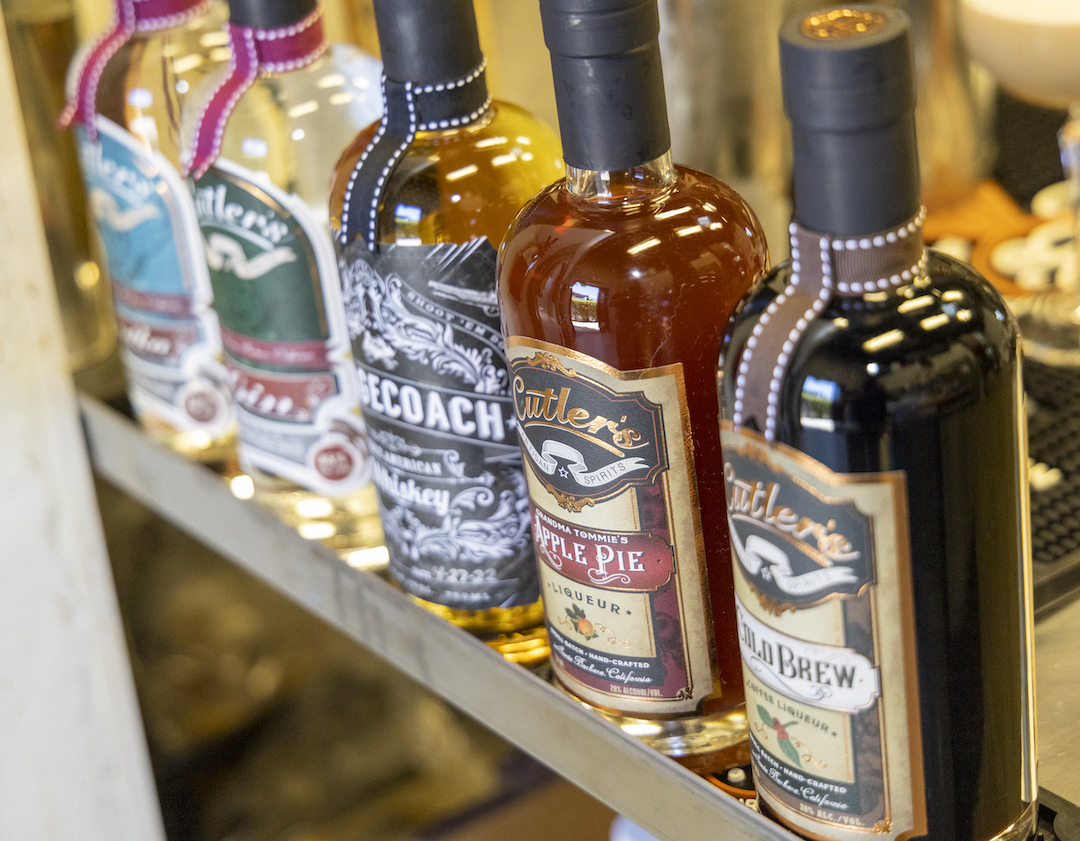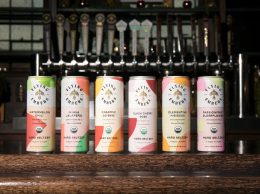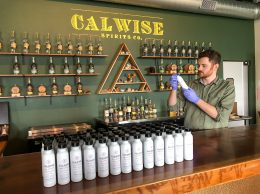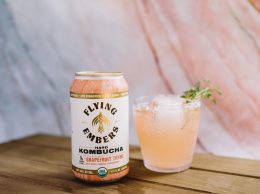Distilleries shake up region’s beverage industry
IN THIS ARTICLE
- Latest news Topic
- Jorge Mercado Author
By Jorge Mercado Thursday, August 25th, 2022
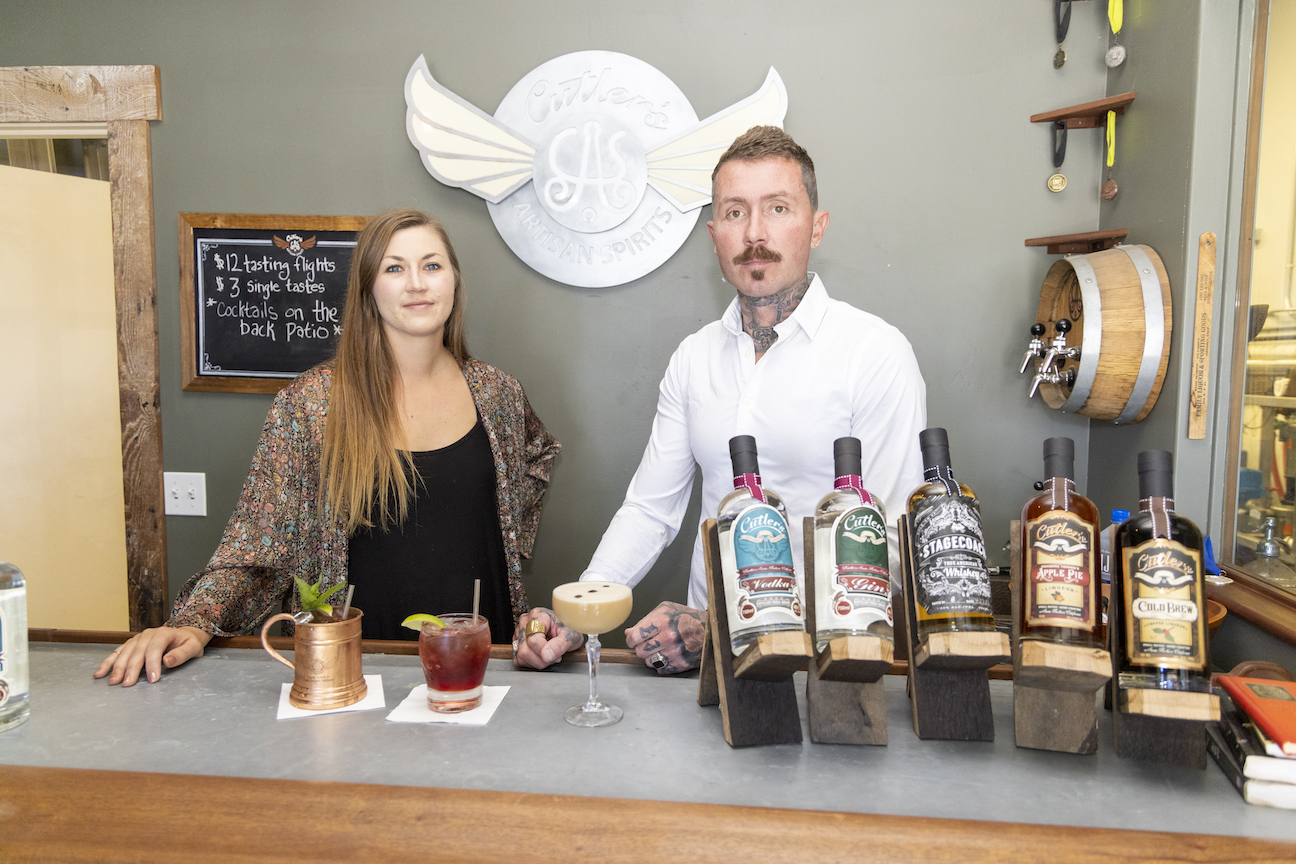
Though water makes up about 60% of the average person’s body, liquor certainly runs in the Cutler family line.
As a boy, Ian Cutler heard the stories of how his great-grandfather was a bootlegger during Prohibition. From there, his family kept running different liquor stores, bars and more, until 1985, when changes to California’s liquor laws made it harder for smaller businesses like his family’s to compete.
But in 2013, Cutler revived his family’s legacy and now runs a Cutler’s Artisan Spirits. The only distillery in Santa Barbara, Cutler’s makes spirits including bourbon, gin, vodka, and coffee and apple pie flavored liqueurs.
“My family name is on this, it’s very personal,” Cutler told the Business Times. “I’m not building a company up to sell or anything like that. I just want to build a quality brand that my family can be proud of.”
Though they might not have the same story as Cutler, many other entrepreneurs are opening distilleries in the tri-county region and across the state.
There are 161 licensed craft distilleries in the state, according to the California Department of Alcoholic Beverage Control, and at least 20 of them are in the Tri-Counties.
California has more distilleries than any other state in the country, Cris Stellar, the executive director of the California Artisanal Distillers Guild, told the Business Times.
Stellar, who owns two distiller brands in El Dorado Hills, said that from 2008 to 2012, there were fewer than 30 distilleries in the state.
The big shift came in 2015, after California created the Type 74 license, which gave small-batch distillers new rights and privileges such as selling bottles directly to consumers at their tasting rooms.
In the Tri-Counties, there has also been a big shift in the beverage industry, with distilleries coming to the forefront. The first distillery in the region opened in San Luis Obispo County in 2012. A decade later, there are 14 distilleries in the county, including Calwise Spirits in Paso Robles, which opened in 2016. Ventura County also has a handful of distilleries, including Ventura Spirits Company and Channel Islands Distillery.
Aaron Bergh, president of Calwise, told the Business Times he doesn’t believe San Luis Obispo County is “even close to reaching our full potential in the craft distillery industry.”
“We are doing something really cool here,” he said. “We’re making the California Central Coast into one of the premier craft spirits locations in the country.”
Beer and wine have been established industries on the Central Coast for decades, but Bergh saw an opportunity when he opened Calwise. The distillery makes gin, rum, whiskey and orange liqueur.
“I think people’s tastes are changing and that they want something a little bit harder,” Bergh said. “There’s definitely been a renaissance in the cocktail world and I think craft cocktails will become more popular.”
In mid-August, The Distillers of San Luis Obispo County hosted a distillery trail weekend in which each of the 14 distilleries showcased their craft spirits. It is the only organized distillery trail in the state and one of a few in the entire country, said Bergh, who also serves as the president of Distillers of SLO County.
“What we have here is unique. We have interesting facilities doing cool things, we have the only trail weekend in the state,” he said. “I think we are really going to put our region as one of the premier craft spirit regions in the world.”
Right now, what most distillers are fighting for is the right to directly ship their spirits to consumers. During the COVID-19 pandemic, an emergency state regulation allowed distilleries to ship direct to consumers, but that expired on March 31. Stellar, with the California Artisanal Distillers Guild, said that regulatory relief provided roughly 30% of craft distillers’ revenue during the pandemic, allowing many small operators to survive.
“And for some it was even 100% of their income,” he said.
Both Bergh and Cutler acknowledged that the right to ship their spirits was a huge help, especially during COVID.
Senate Bill 620 was introduced last year to allow distilleries to ship as well as to increase the volume a distillery is allowed to sell in one day. Assemblymember Jordan Cunningham, R-San Luis Obispo, was a co-author.
That bill has not been voted on, but Stellar said a second bill, Assembly Bill 920, was introduced Aug. 23, which would be a temporary bill allowing for a one-year extension for direct-to-consumer shipping.
“The reason why you’ve seen distilleries pop up has been regulatory relief,” Bergh said. “I think if we can get this shipping bill done, you’ll continue to see even more growth and jobs created around our industry.”
